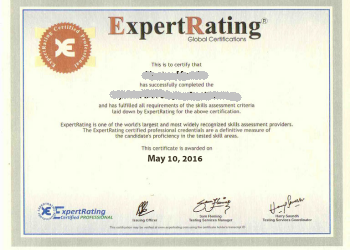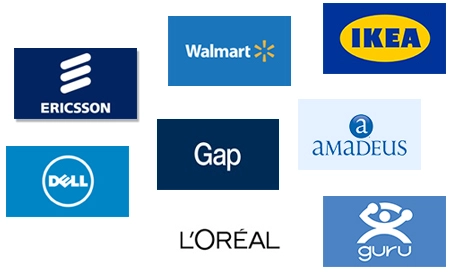Cultural Competence in Health Care
The culturally diverse health care populations in the United States provide health care professionals with tremendous opportunities to bridge cultural gaps, incorporate new treatments and disease prevention strategies into their practices, and learn about different cultural values and cultural belief systems.
The outcome of this course is for the learner to describe cultural characteristics of major cultural groups in the United States; explore the relationship between language, culture, and health care; identify health beliefs and health care systems; describe cultural competence; and identify specific culturally competent practices.
Traditional Healing Systems
Traditional medicine has a rich and extensive history dating back thousands of years. Used by the majority of the world's population, traditional healing systems include a diverse collection of philosophies, practices, spiritual and manual therapies, incorporating plant, animal, and/or mineral-based medicines. Most often used by indigenous persons determined to preserve, develop, and transmit their knowledge to future generations, traditional medicine is increasingly popular due to its accessibility and affordability, its holistic focus, and because of its emphasis on community and cultural values.
The outcome of this course is for the learner to discuss major forms of global traditional healing systems including Ayurveda, traditional Chinese medicine, Native American healing, South African healing, curanderismo, and Central and South American healing traditions.
Manual Bodywork Healing Therapies
Touch is one of the most primal needs of any human being. Manual bodywork healing therapies address the need for human touch, enhance health, and heal the body, mind, and spirit. Somatic and musculoskeletal therapies for healing include therapeutic massage, (including Swedish massage, rhythmical massage, sports massage, hot stone massage, neuromuscular massage therapy, and Aston patterning); Eastern, meridian-based, and point therapies (acupressure, shiatsu, Jin Shin Jyutsu, and reflexology); energy-based therapies (Therapeutic Touch ®, Reiki, and Healing Touch); emotional bodywork (Rolfing and Hellerwork); and manipulative therapies (osteopathy and craniosacral therapy).
The outcome of this course is for the learner to describe the various types and benefits of manual bodywork healing therapies.
Understanding Chiropractic Care
Chiropractic is often considered a complementary and alternative medicine (CAM) therapy. Chiropractic care commonly uses spinal manipulation therapy as a main treatment modality to address back and neck pain, as well as pain in the joints of the arms or legs, and headaches. The goal is to correct alignment problems, ease pain, and support the body's natural ability to heal itself.
The outcome of this course is for the learner to describe the scope of chiropractic practice; examine the philosophies that are part of chiropractic; list key milestones in the development of chiropractic care both in the United States and internationally; and conditions that are commonly treated.
Yoga: An Integrative Practice for Life
The practice of yoga is becoming increasingly popular as a way to relieve stress, live in harmony with nature, and enhance well-being of the mind and body. One reason for its growing popularity is that more many people are open to it and are using holistic approaches to manage their pressure-filled, fast-paced lives. Yoga provides an integrative, healthy way to connect mind, body, and spirit, resulting in improved physical, mental, and emotional health.
The outcome of this course is for the learner to describe the philosophical foundations of yoga, the eight-limb path of yoga, styles of yoga, Western yoga, benefits of yoga, contraindications and risks of yoga, factors to consider when choosing a yoga class, and the safe practice of yoga for children, adolescents, and seniors.
Acupuncture
The ancient Chinese healing practice of acupuncture has been used for thousands of years to treat many ailments, especially pain. Today, this therapy that addresses disharmony in the body, mind, and spirit is widely practiced throughout China and is used by millions of individuals in the United States and many other countries. This course explores the history of acupuncture, the theories involved in its practice (including yin and yang, qi, the meridian system, and causes of disharmony), the types and benefits of acupuncture, as well as possible complications and contraindications of the therapy and training issues.
The outcome of this course is for the learner to describe the practice, theories, and clinical efficacy of acupuncture.
Natural Products: Nutraceuticals, Probiotics, Herbs, and Botanicals
Our diet has a profound impact our health and well-being, yet many of us are not aware of where our food originates from and even less of us are aware of exactly what is in these foods. Many individuals eat foods sprayed by numerous pesticides, grown in depleted soil, "enhanced" with hormones and antibiotics, or obtained from countries thousands of miles away from our home. How can we change our eating habits and become more conscious of what we eat, why we eat it, and how it is prepared? How can we use that information and select healthy "natural products" designed to support our diet and support our health?
The outcome of this course is for the learner to describe what "natural products" are and how they support health and well-being; and explain the role of nutraceuticals, probiotics, herbs, and botanicals in a healthy diet.
Aromatherapy: The Healing Power of Scent
Aromatherapy is a complementary and alternative therapy that uses essential oils to promote both physical and psychological health. It is often used in conjunction with massage, meditation, and other therapies to achieve healing.
Aromatherapy has gained in popularity in recent years, and clinical aromatherapy (the use of specific essential oils for the prevention and treatment of health conditions) is being incorporated into treatment plans by naturopathic physicians, medical doctors, registered nurses, licensed massage therapists, and licensed acupuncturists as well as other healthcare providers.
The outcome of this course is for the learner to describe the historical use of fragrance and aromatherapy for healing, the methods of essential oil extraction and application, the clinical effects of essential oils using a body systems approach, the research about using aromatherapy for specific conditions, contraindications regarding the use aromatherapy, and the key elements of some of the most common essential oil monographs.
Naturopathy: A Natural System of Healing
Naturopathic medicine has a long, complex history. Considered a way of life and a system of healing encompassing many different modalities, naturopathy is experiencing a resurgence today as a result of the dissatisfaction many Americans feel about conventional medicine and the growing interest and respect for alternative and complementary methods of healing.
The outcome of this course is for the learner to describe naturopathy, its history, the principles and schools of thought which comprise this healing system; the training and educational requirements of naturopathic practitioners; and the issues inherent in the future of naturopathy.
Animal-Assisted Therapy
Animals have been a part of our lives as long as we have been on the planet. The health benefits of the human-animal bond are far reaching. From guide dogs, to watching fish in an aquarium, to swimming with dolphins, animals provide us with companionship, assistance, exercise, a sense of calmness, sensory stimulation, and a level of acceptance that is often difficult to find from any other source.
The outcome of this course is for the learner to describe the purpose of animal-assisted therapy, the theoretical background of the therapy, the benefits of this type of therapy for humans, several common types of animal-assisted therapy, and guidelines for developing an animal-assisted therapy program.
The Chakra System
The chakra system has been practiced by yogis for thousands of years as an integral part of healing. Recently, interest in this ancient system has exploded within the health care profession and the general population. Chakras are spinning vortices of energy positioned in seven centers of the body from the coccyx to the crown of the head. This course will provide an overview of the chakra system, chakras, and elements of chakra balancing.
The outcome of this course is for the learner to describe the chakra system, the seven chakras, (where they are believed to be located within the body, their purpose, and associated colors) as well as the factors involved in chakra balancing.
Legal Issues in Complementary and Alternative Medicine
Patient use and acceptance of complementary and alternative medicine (CAM) therapies in the United States is increasing. However, many legal issues remain unresolved surrounding provider oversight, inconsistent legislative mandates regarding definitions about standards of care and scope of practice, liability issues for providers and organizations, and lack of knowledge about CAM therapies.
The outcome of this course is for the learner to describe the major legal issues facing biomedical providers and integrative health providers, state laws relating to the regulation, credentialing concerns, malpractice and liability issues, and third-party reimbursement.
Ethical Issues in Complementary and Alternative Medicine
There has been a dramatic rise in the use and acceptance of complementary and alternative medicine (CAM) therapies in the United States. However, there are ethical issues that remain unresolved surrounding provider oversight, inconsistent legislative mandates regarding definitions about standards of care and scope of practice, liability issues for providers and organizations, and lack of knowledge about CAM therapies.
The outcome of this course is for the learner to describe the major ethical issues facing biomedical providers the rise of Integrate medicine, specific ethical theories, and the relationship between culture and ethics.



